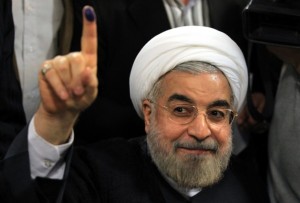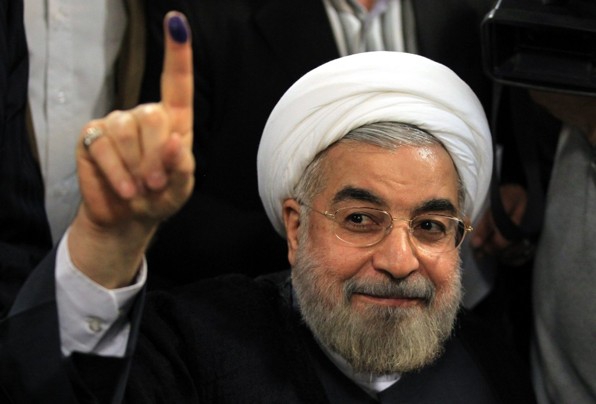 TEHRAN � Not just anyone is allowed to become president of Iran.
TEHRAN � Not just anyone is allowed to become president of Iran.But just about anyone can sign up to be considered, and the dozens of candidates who lined up to do so in Tehran on Tuesday offered a window into the uncertainty and confusion surrounding an election that is just six weeks away.
By the end of the day, 62 Iranians had registered to become candidates, and hundreds more are expected by the time the process closes Saturday. But in the end, no more than a handful will appear on the ballot, with the approval power vested in an appointed council that reflects the will of Iran�s supreme leader.
Some would-be long shots say the proceedings offer an opportunity to be close to power � and to test how willing the country�s clerical establishment may be to tolerate non-mainstream figures.
�I am extremely overqualified,�� said one such candidate, Ali Rahimi, a 59-year-old surgeon, �so I want to see what sort of reason they come up with for refusing my candidacy.��
A first-time candidate who speaks fluent English, Rahimi said he is a graduate of the University of Kentucky and holds U.S., German and Iranian citizenship. He said he would work to mend the tensions between Iran and the United States that �have been going on for so long over so little.��
The prospect that any single candidate might win approval to run for president is so small that Mahmoud Ahmadinejad faced only seven Election Day foes when he was first elected president in 2005 � even though 1,014 candidates sought to take part.
Some members of Iran�s political establishment think the idiosyncratic registration procedures are bad for the country�s image.�Changes to Iran�s election laws�proposed last year by parliament would have made it more difficult for so many people to register, but the measure failed, which means the number of candidates is likely to be very high again this year.
The final judgment on a candidate is made by a 12-person Guardian Council and is based on qualifications that include education requirements and loyalty to the Islamic revolution and its political system.
But the initial process is open to all, and the many who gathered Tuesday inside Iran�s Interior Ministry were asked to take a number from a dispensing machine in a hallway. They were later ushered to an election headquarters to complete paperwork and be fingerprinted.
Although many unknowns have signed up, several key political figures � including former presidents Mohammad Khatami and Akbar Hashemi Rafsanjani, along with Ahmadinejad�s top adviser, Esfandiar Rahim Mashaei � have yet to announce whether they will run. Any of their entries would deeply affect a race that has no clear front-runner.
Among the earliest registrants, Hassan Rowhani, a moderate and Iran�s former lead�nuclear negotiator�who is said to have the support of two former presidents, drew the most attention Tuesday.
But there were others who used the opportunity to claim a brief moment in the spotlight.
An elderly man, Ali Nasiri, took to an auditorium stage with Koranic verses handwritten across his clothes. He carried a bouquet of flowers and the flag of the Islamic republic, and�draped himself�in the kind of shroud that Muslims use for burial, a sign that he was ready to die for his country.
After several minutes, security guards asked him to give the next candidate a turn.
By The Washington Post
The Iran Project is not responsible for the content of quoted articles.











